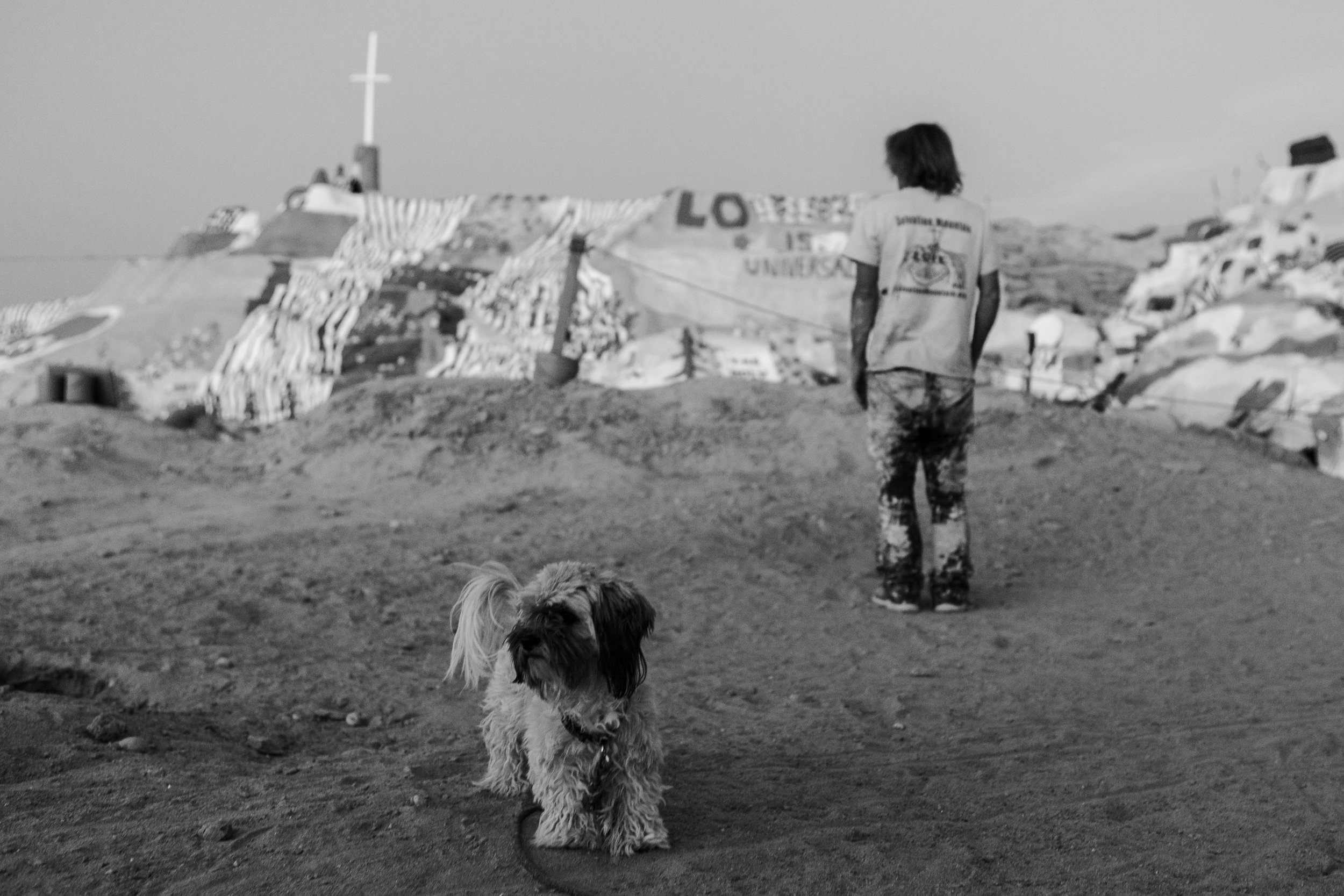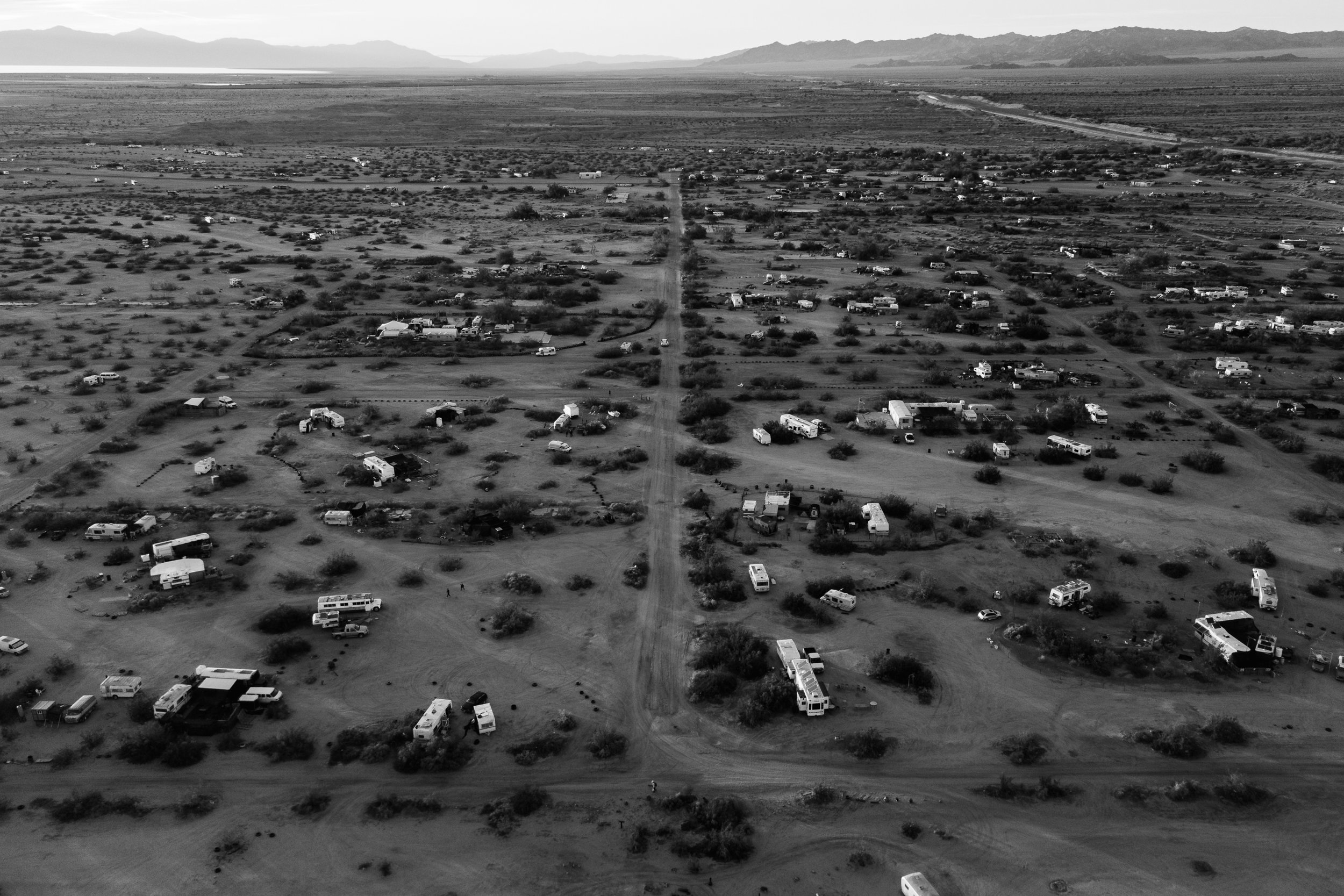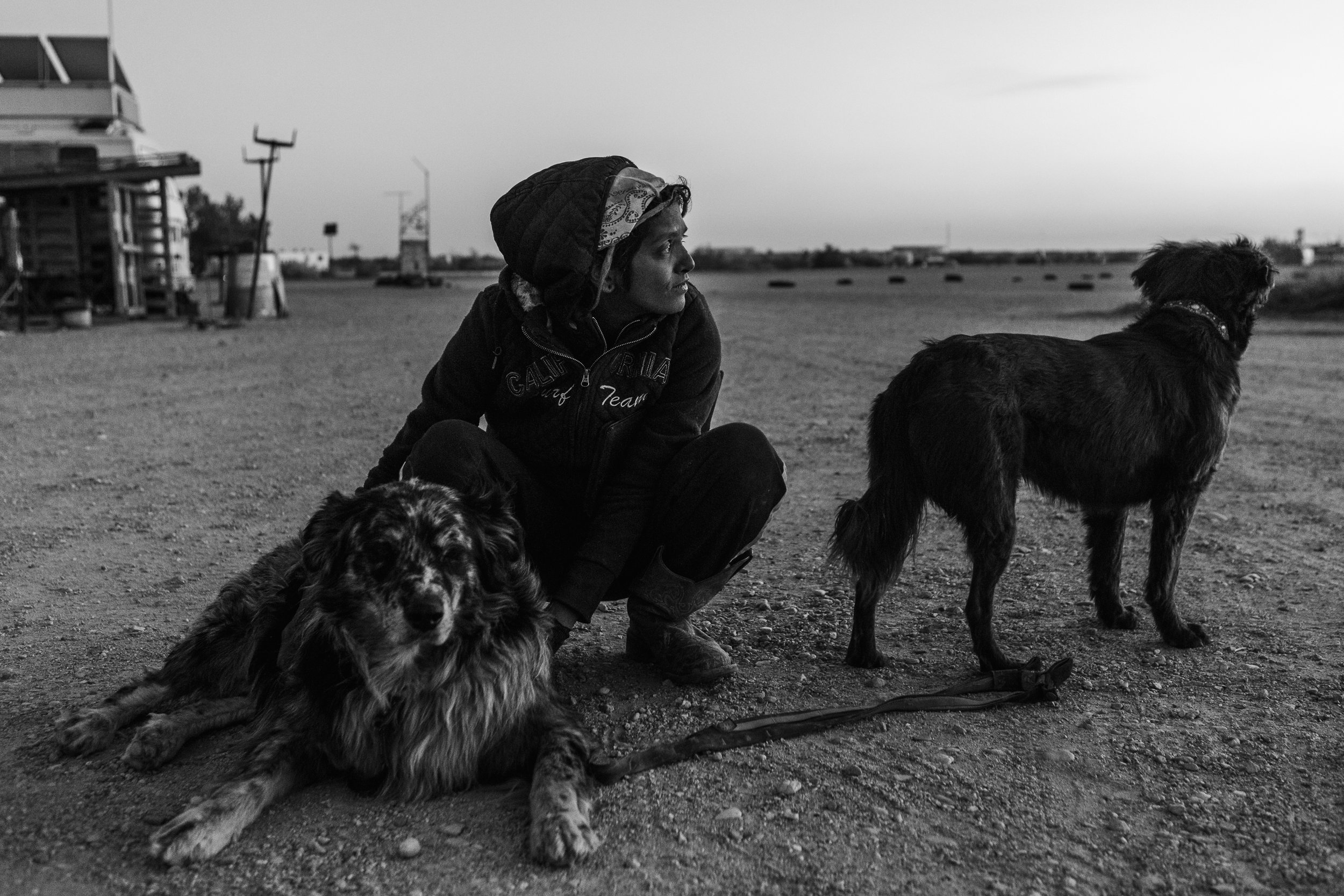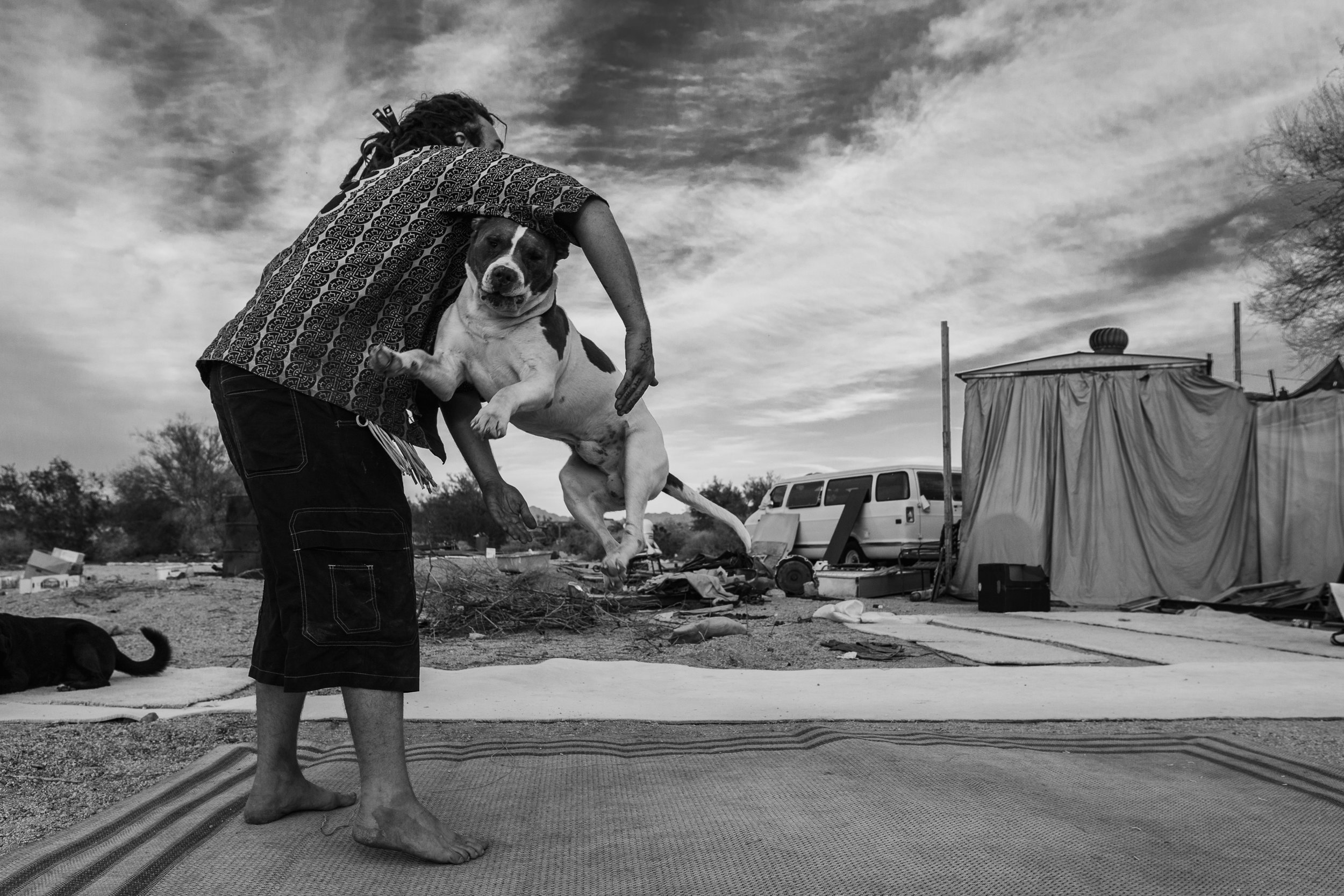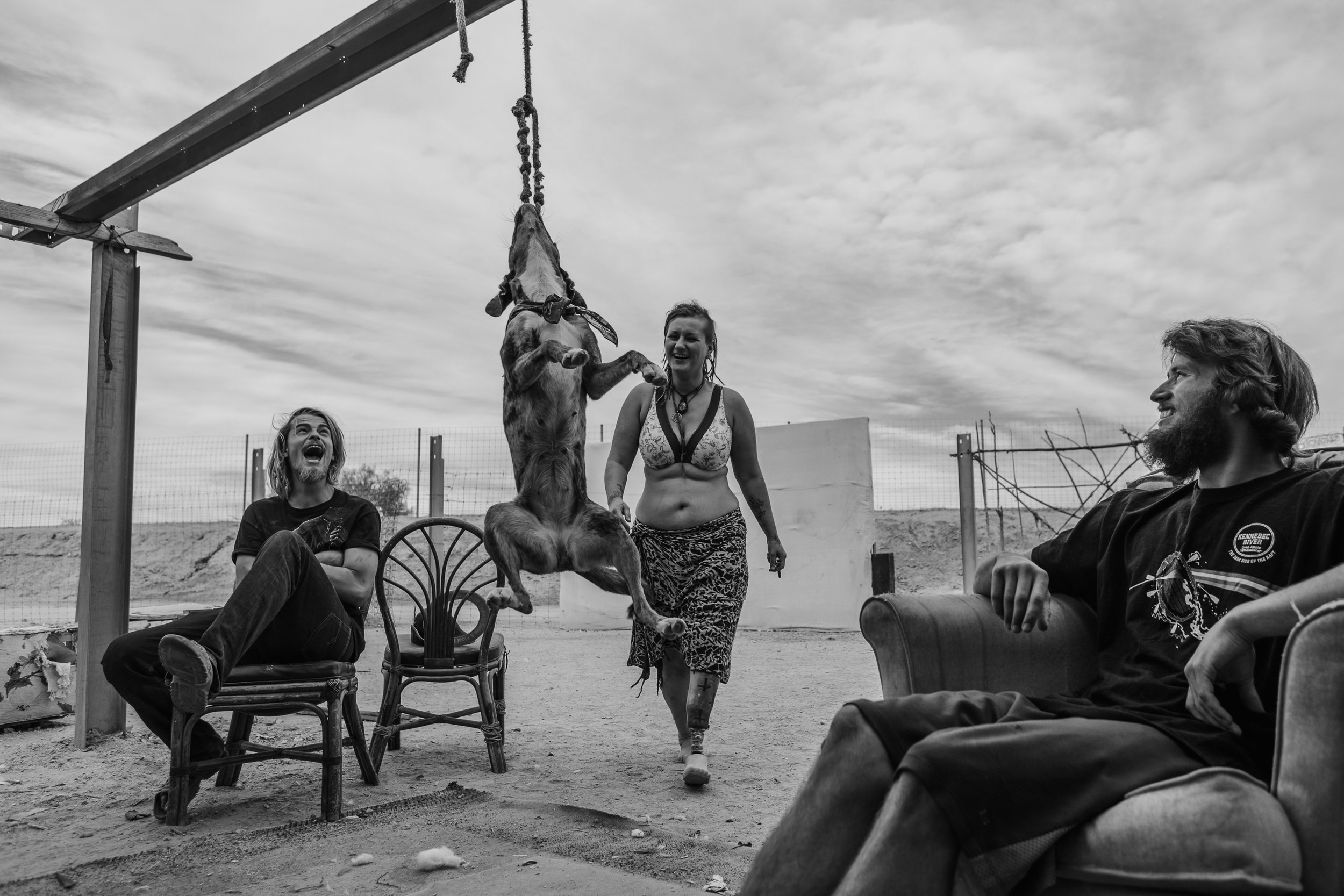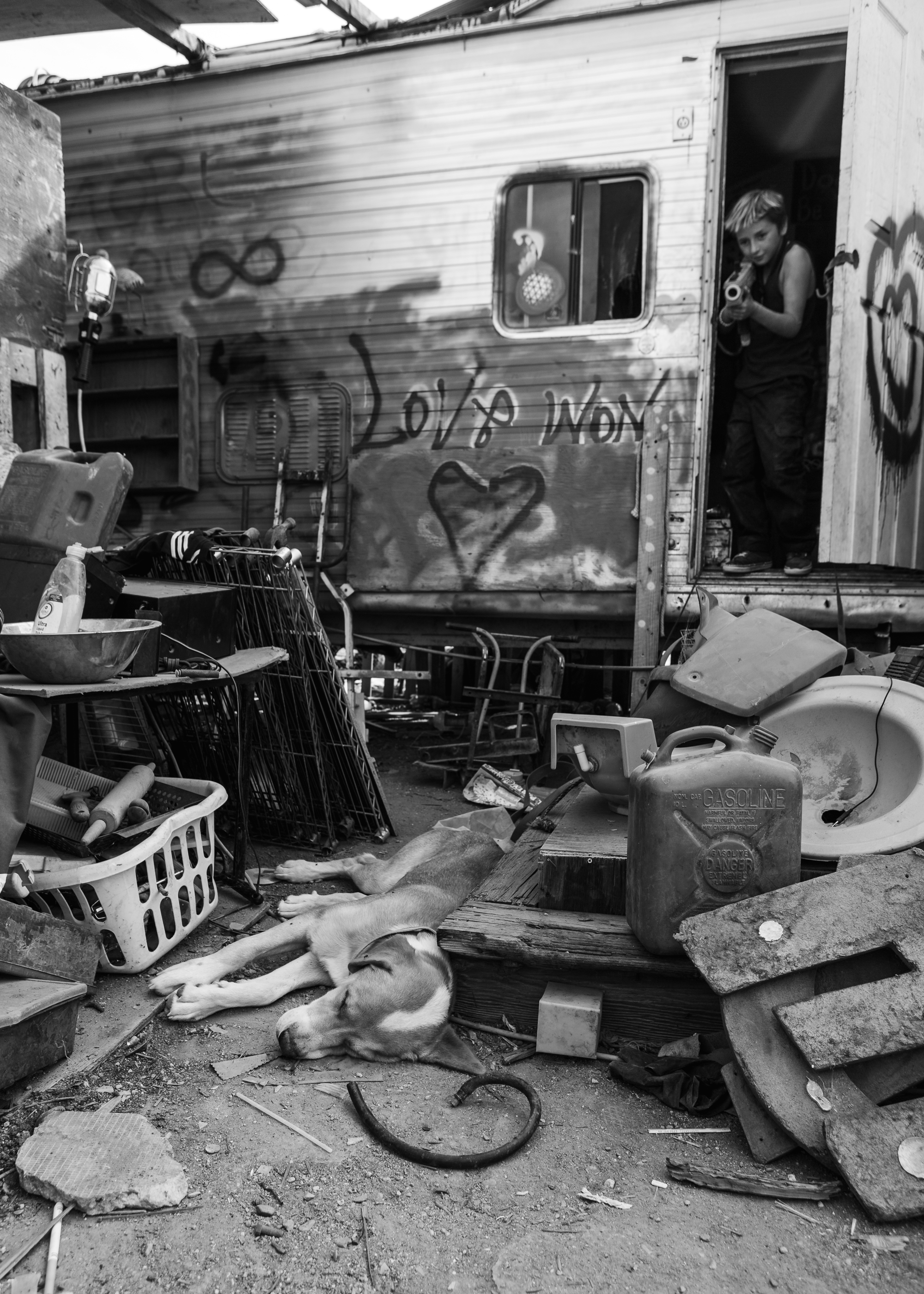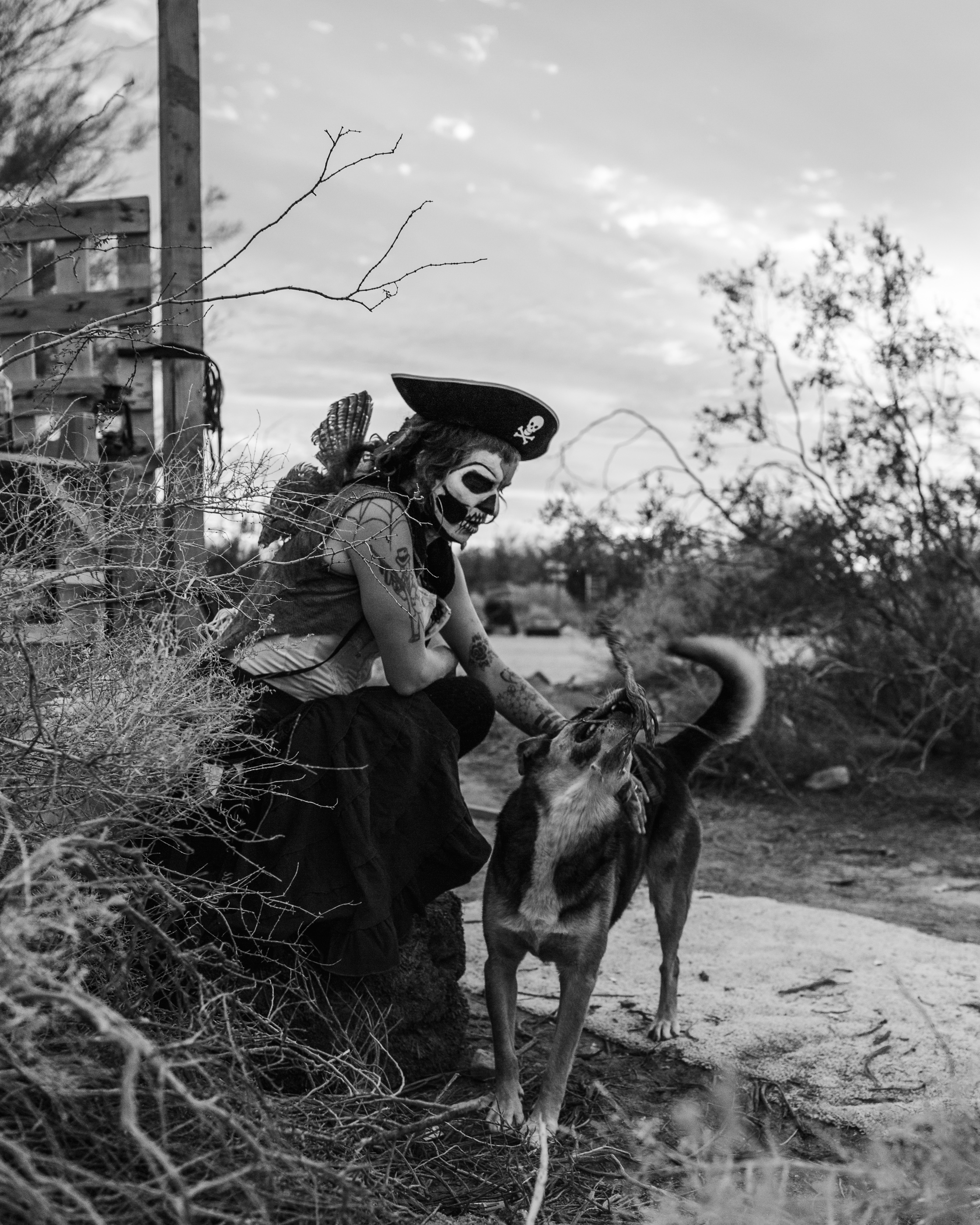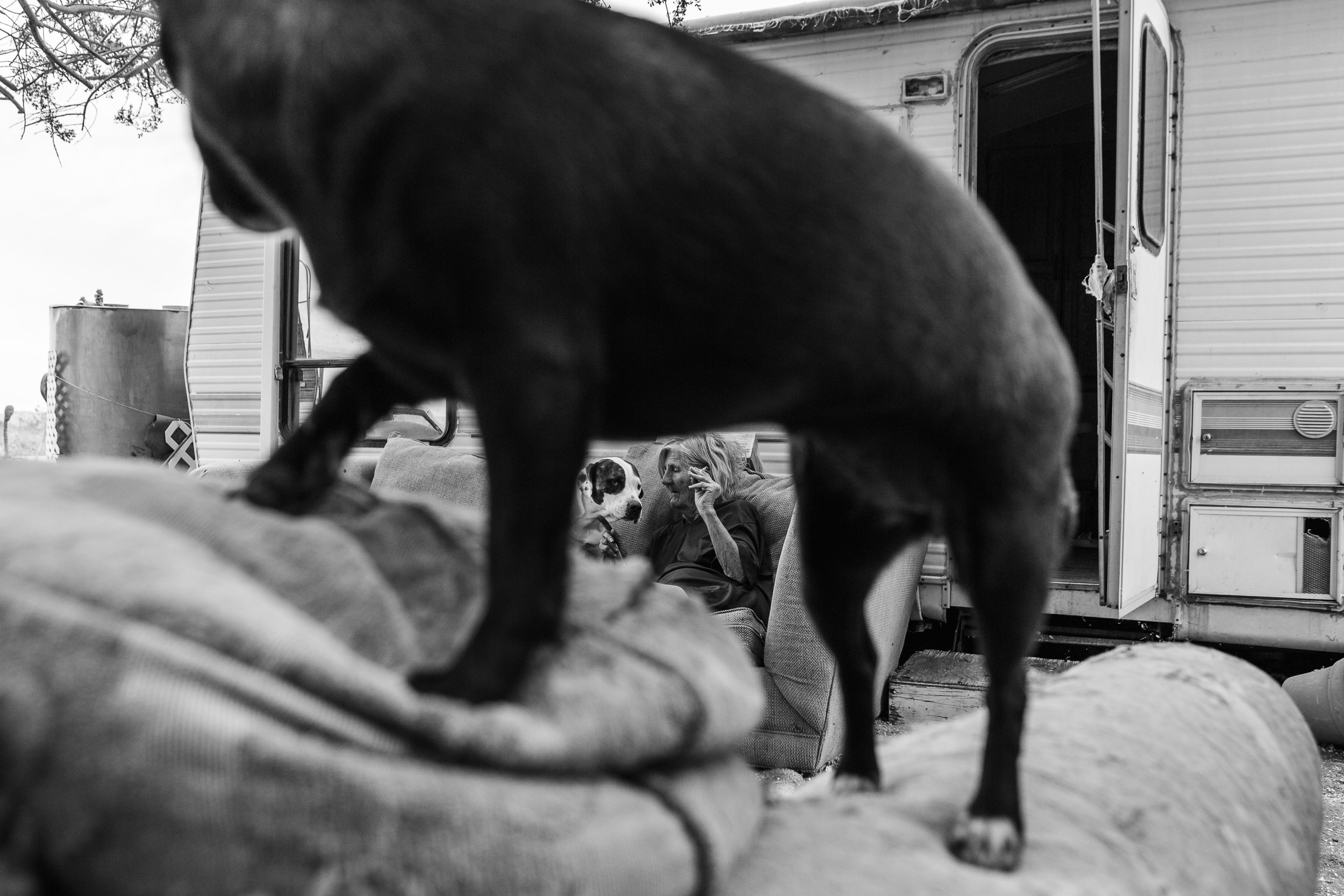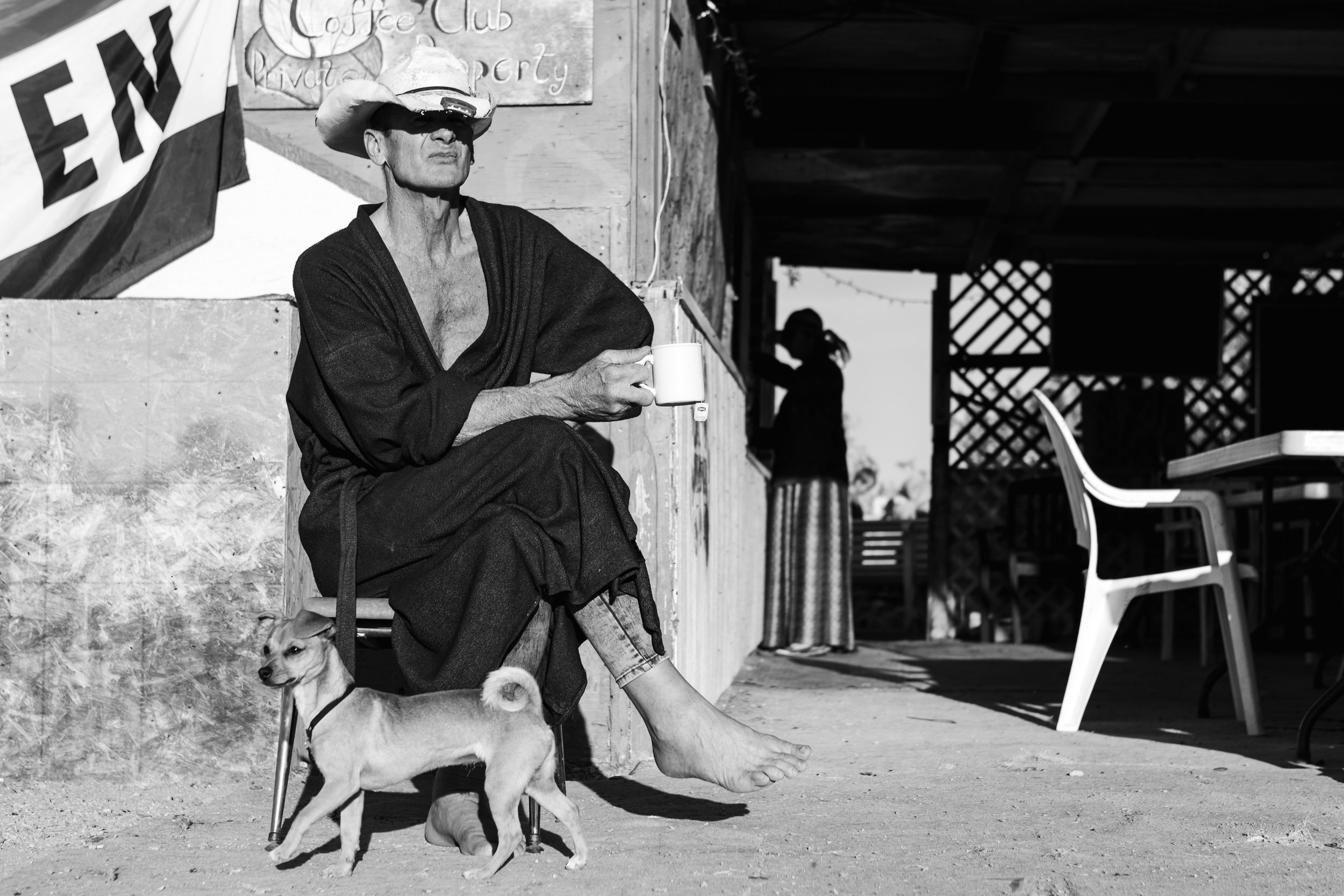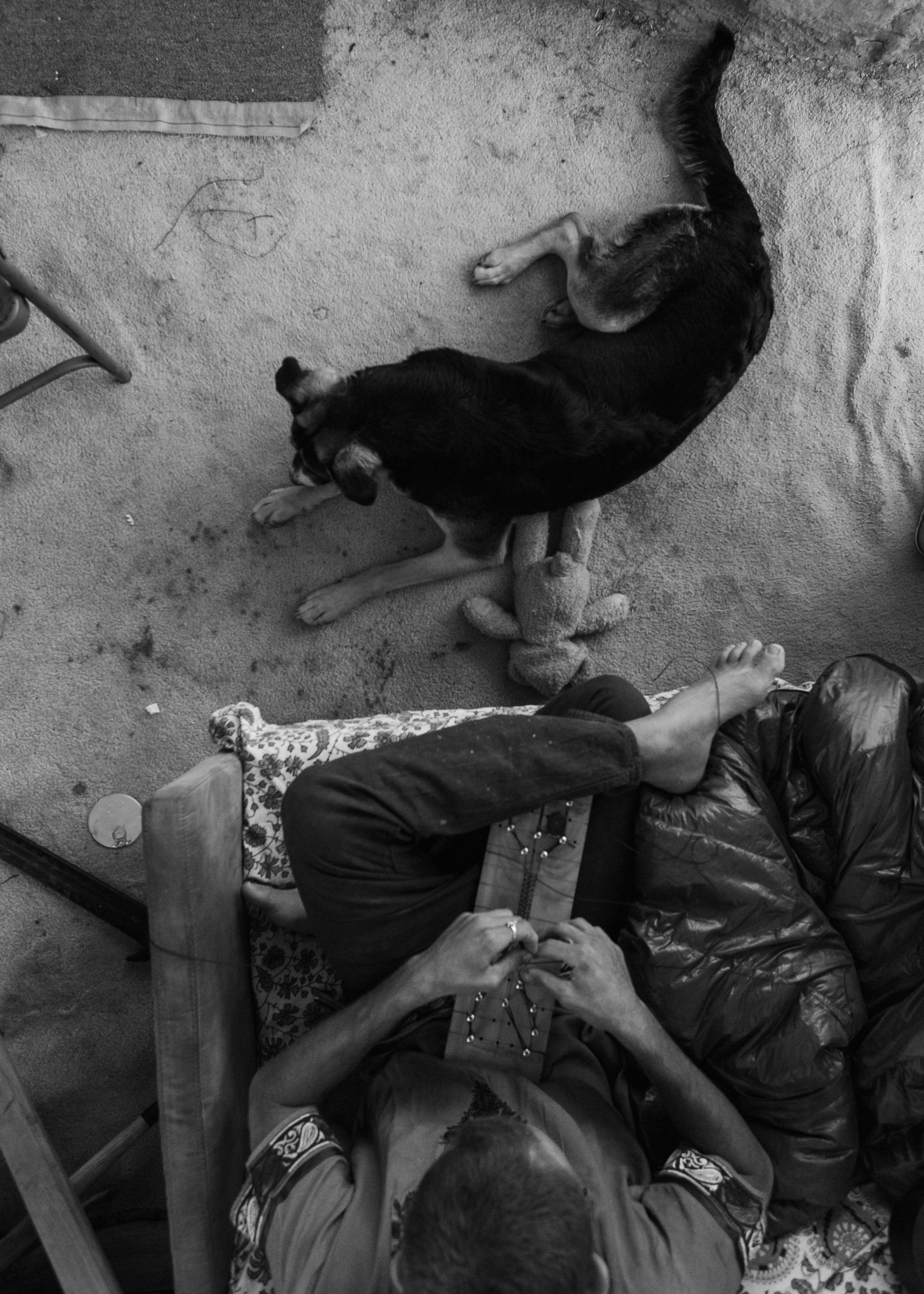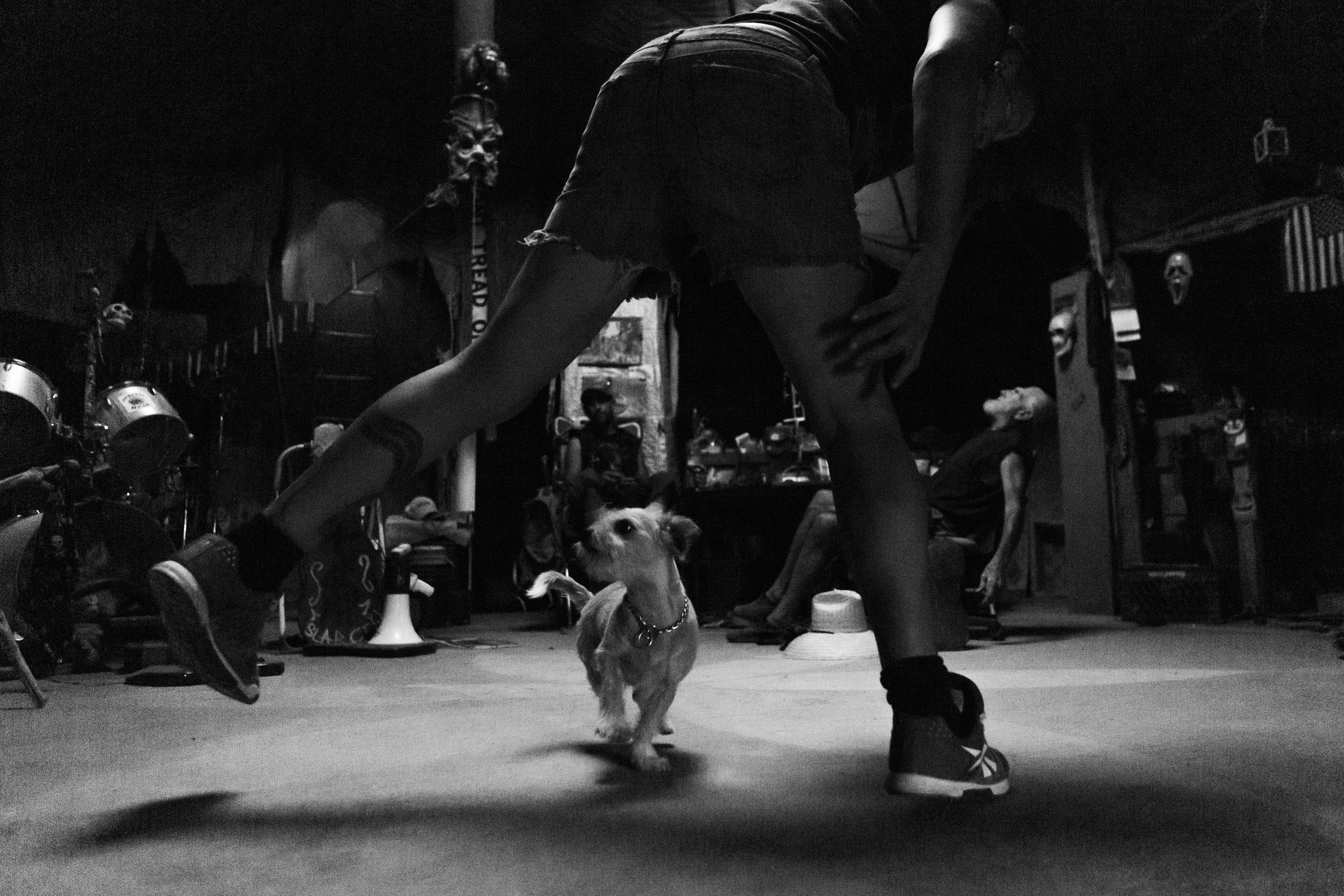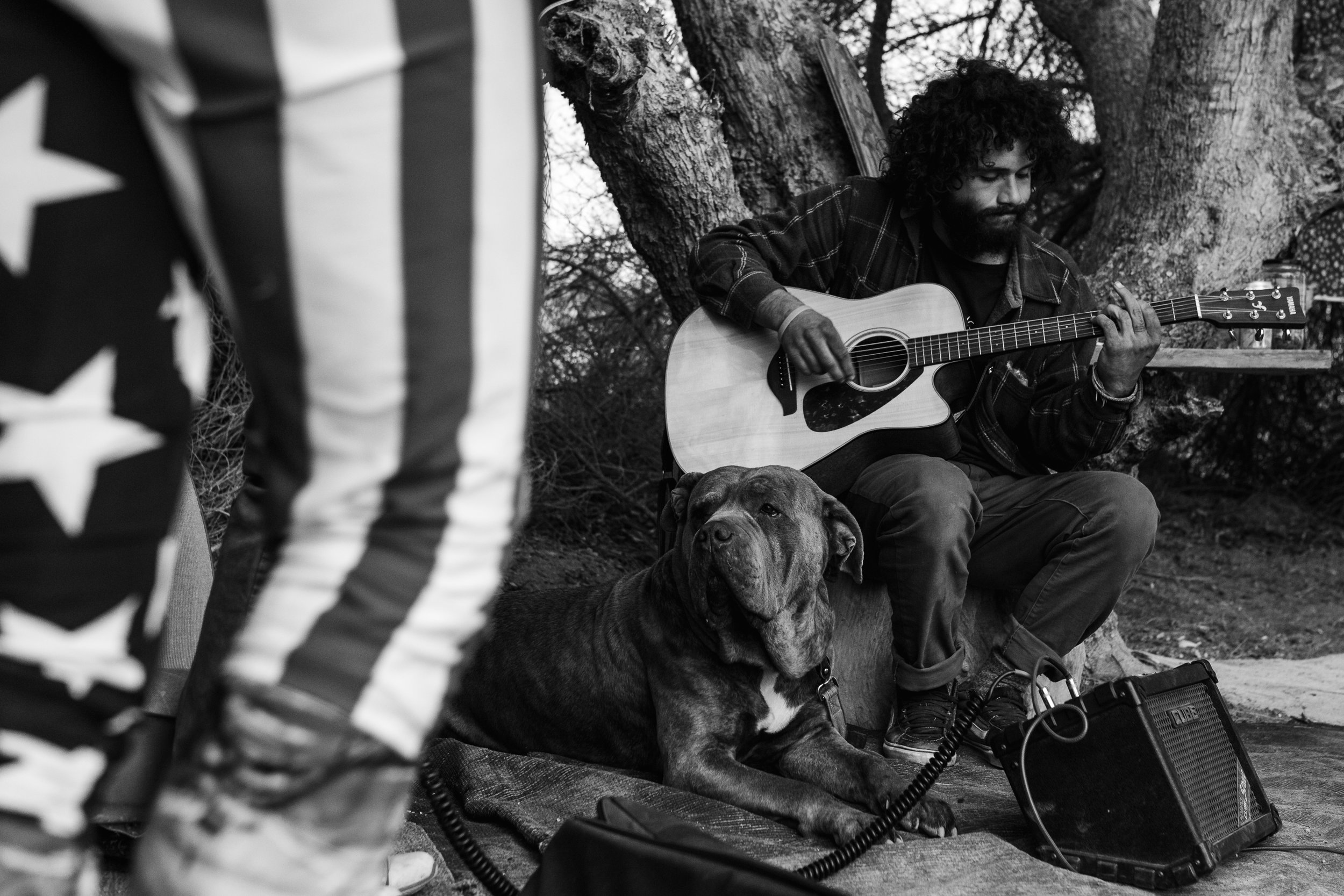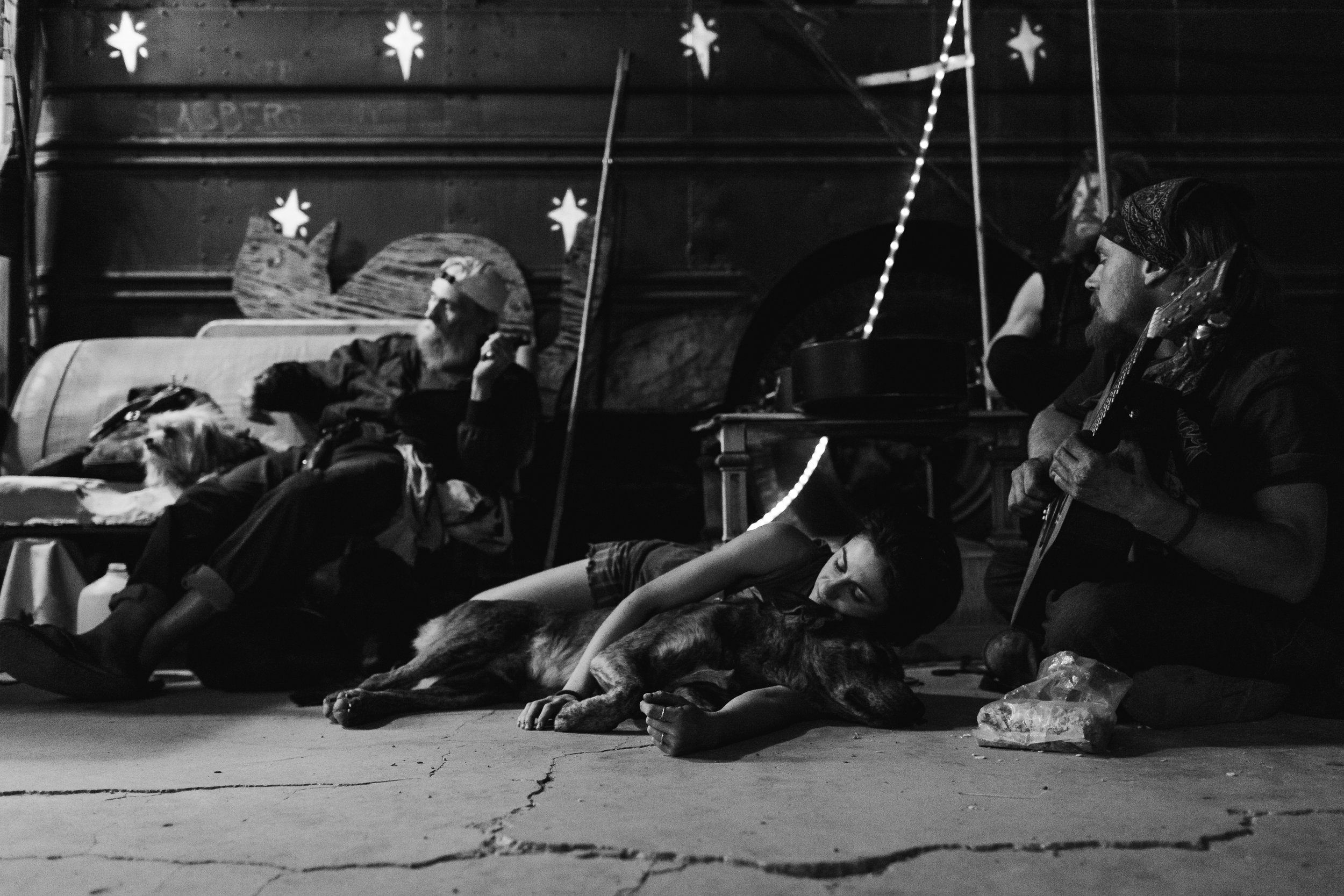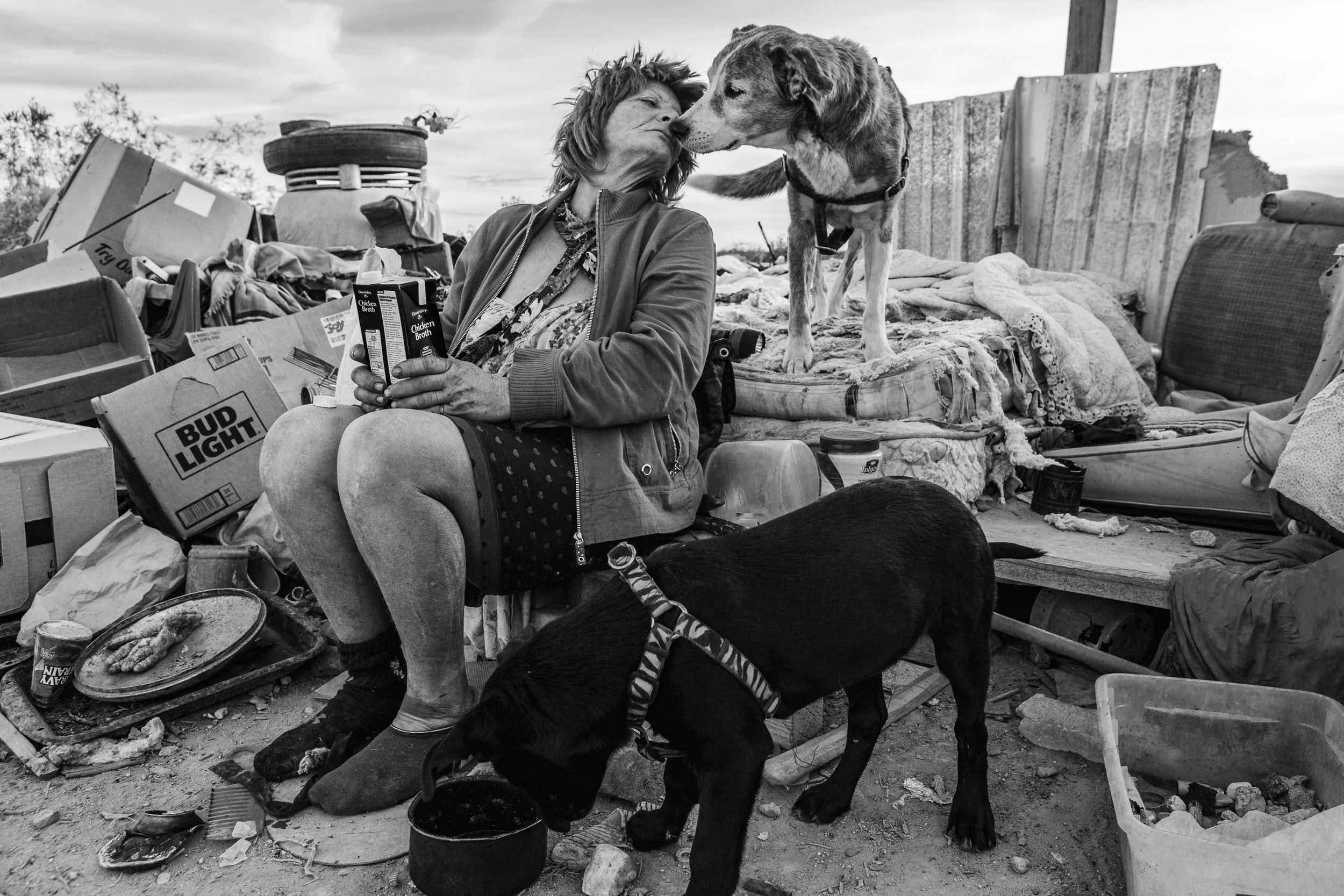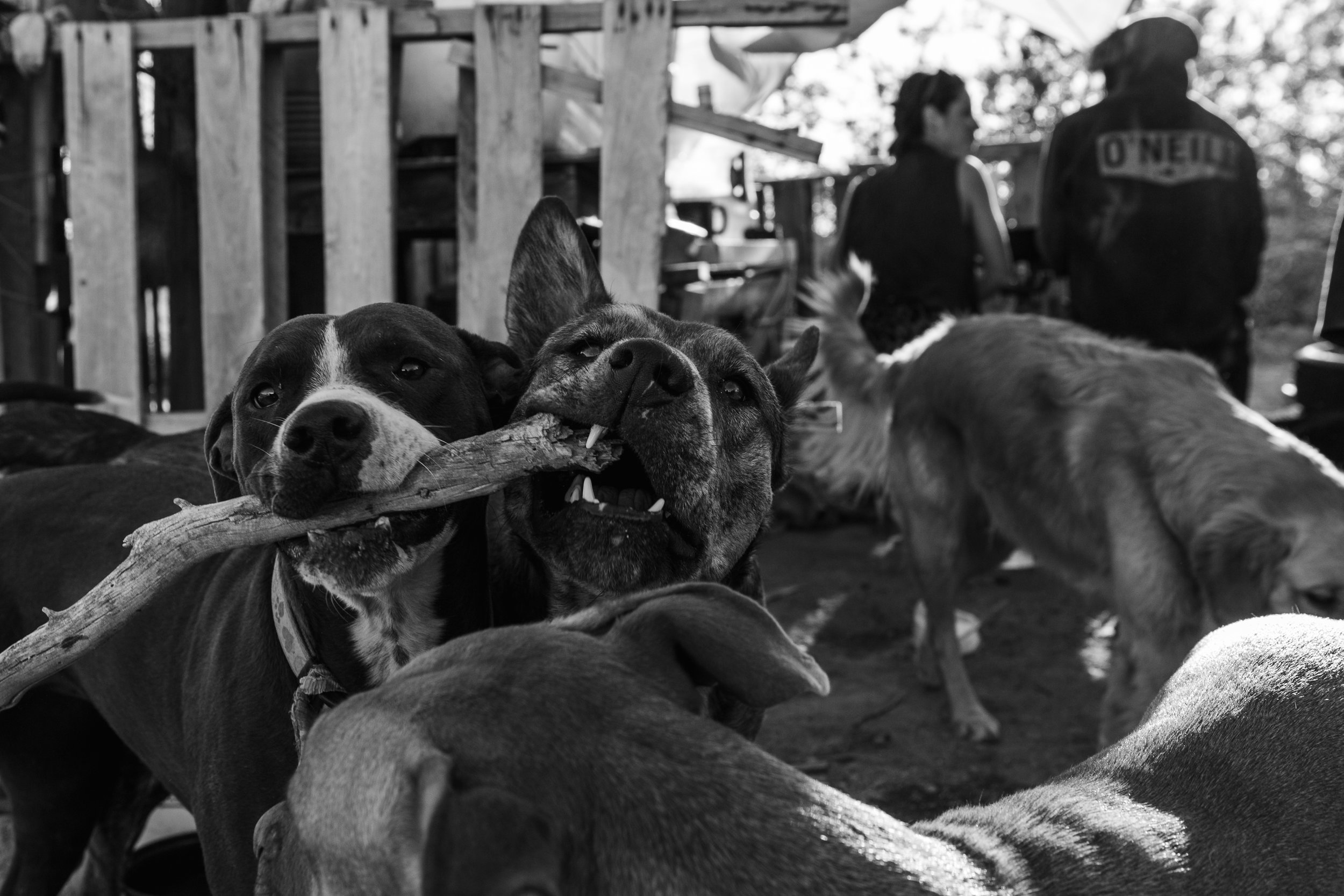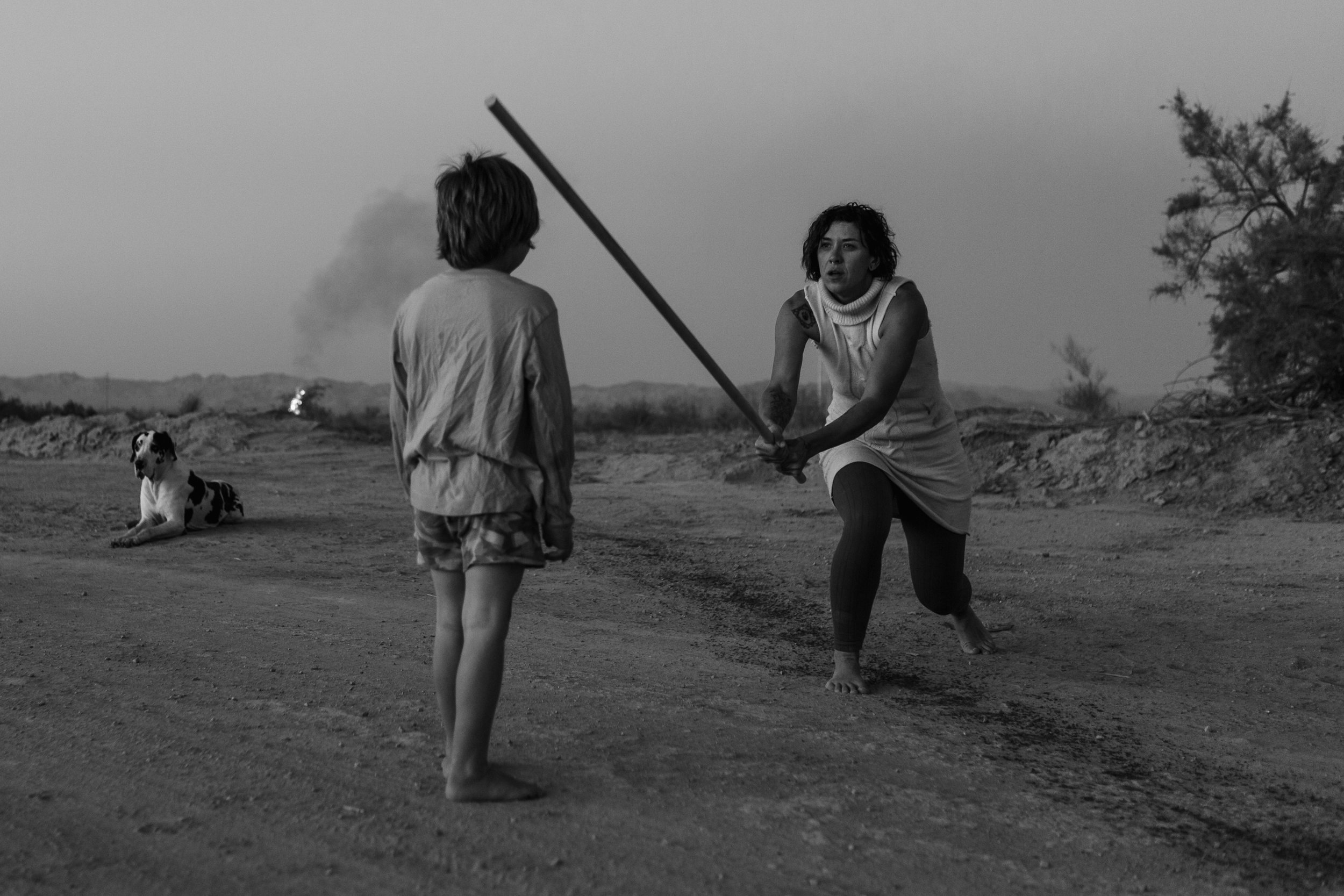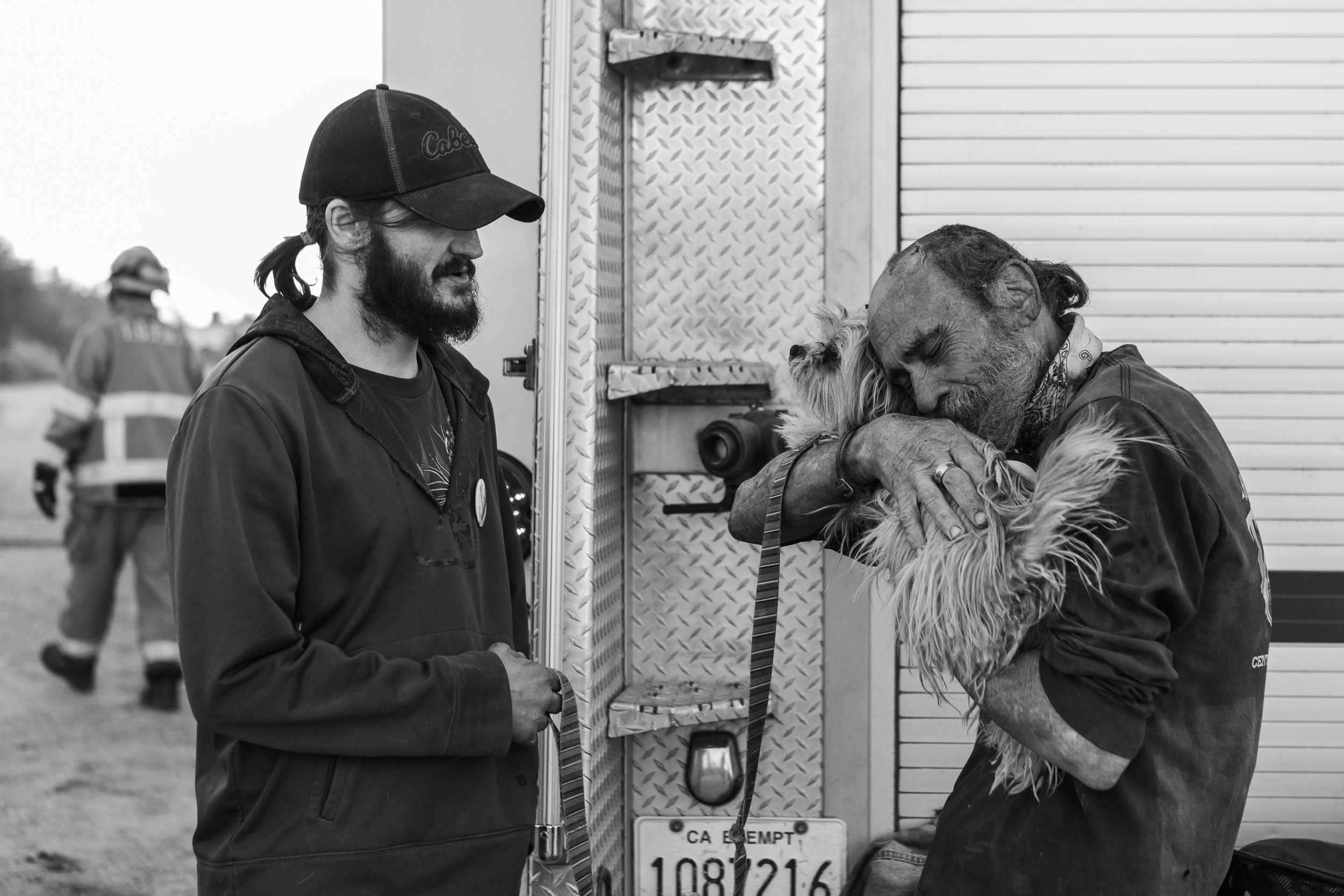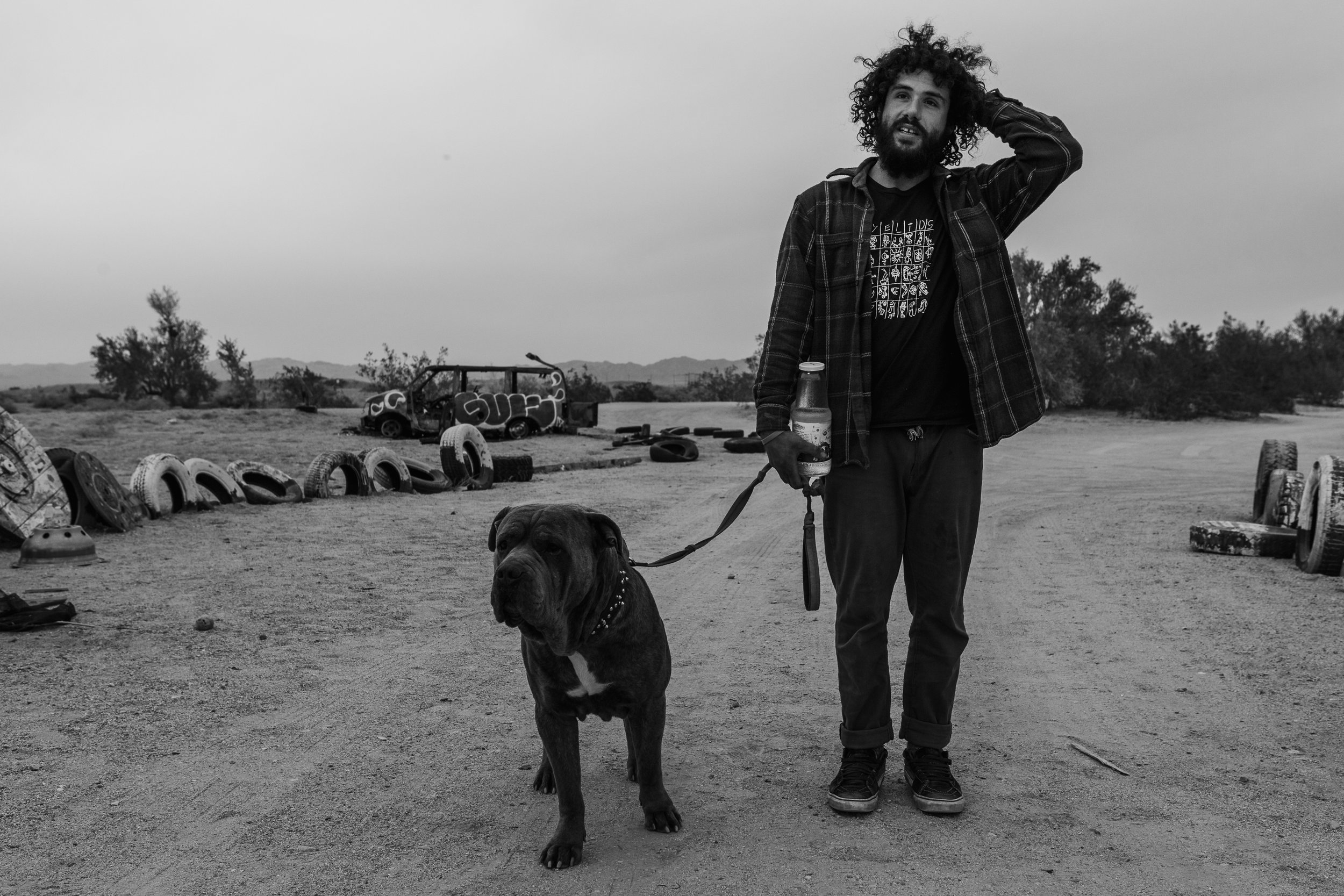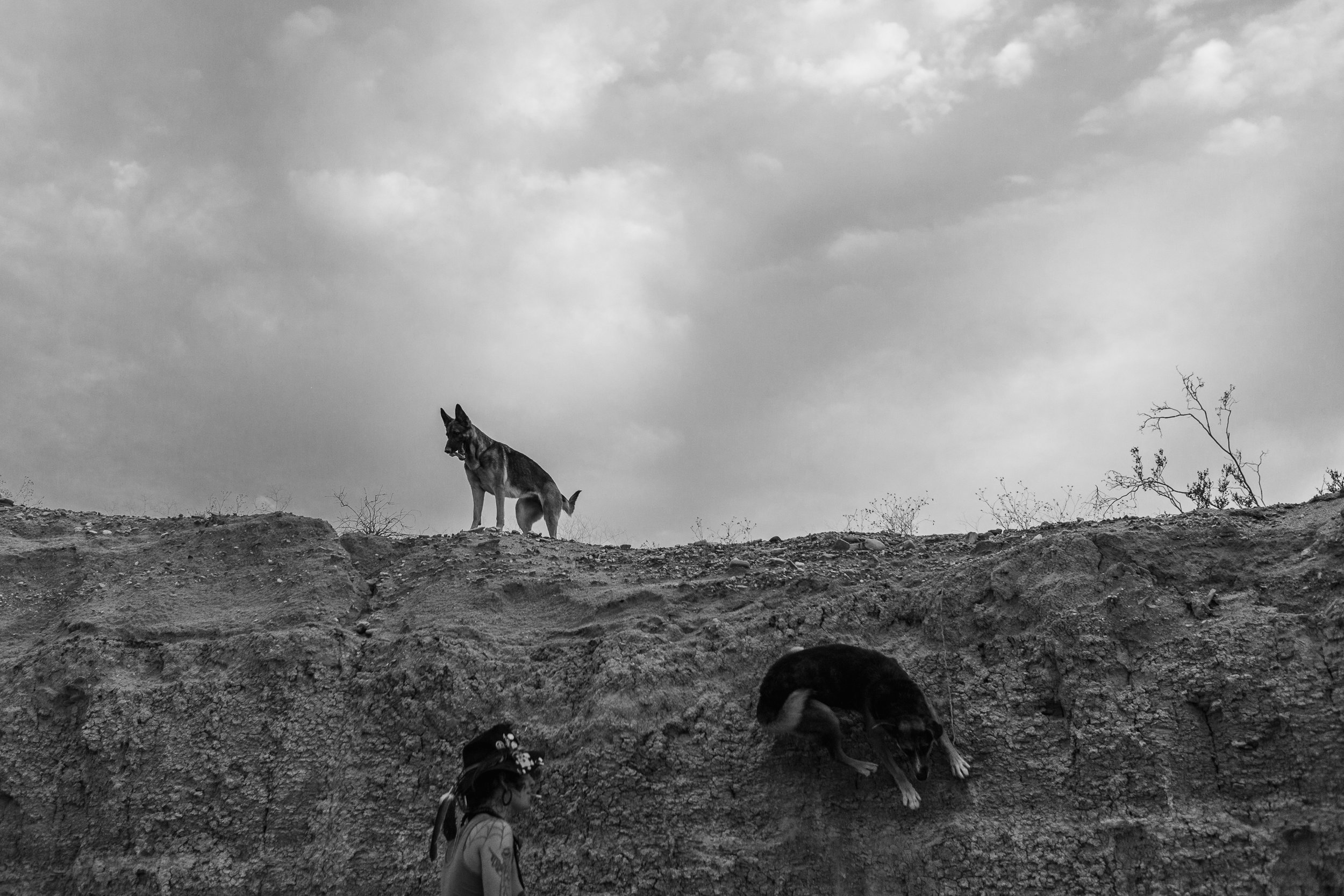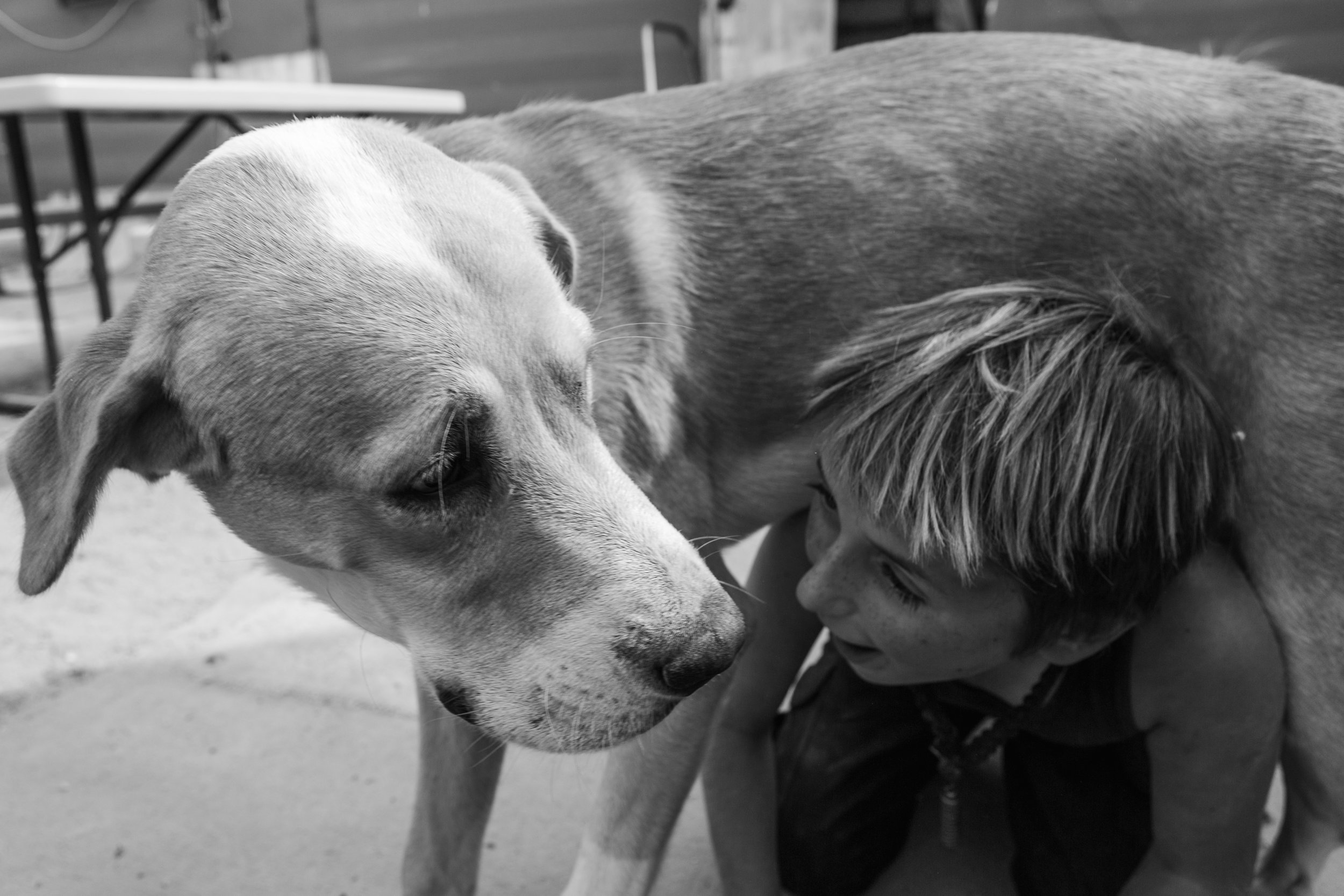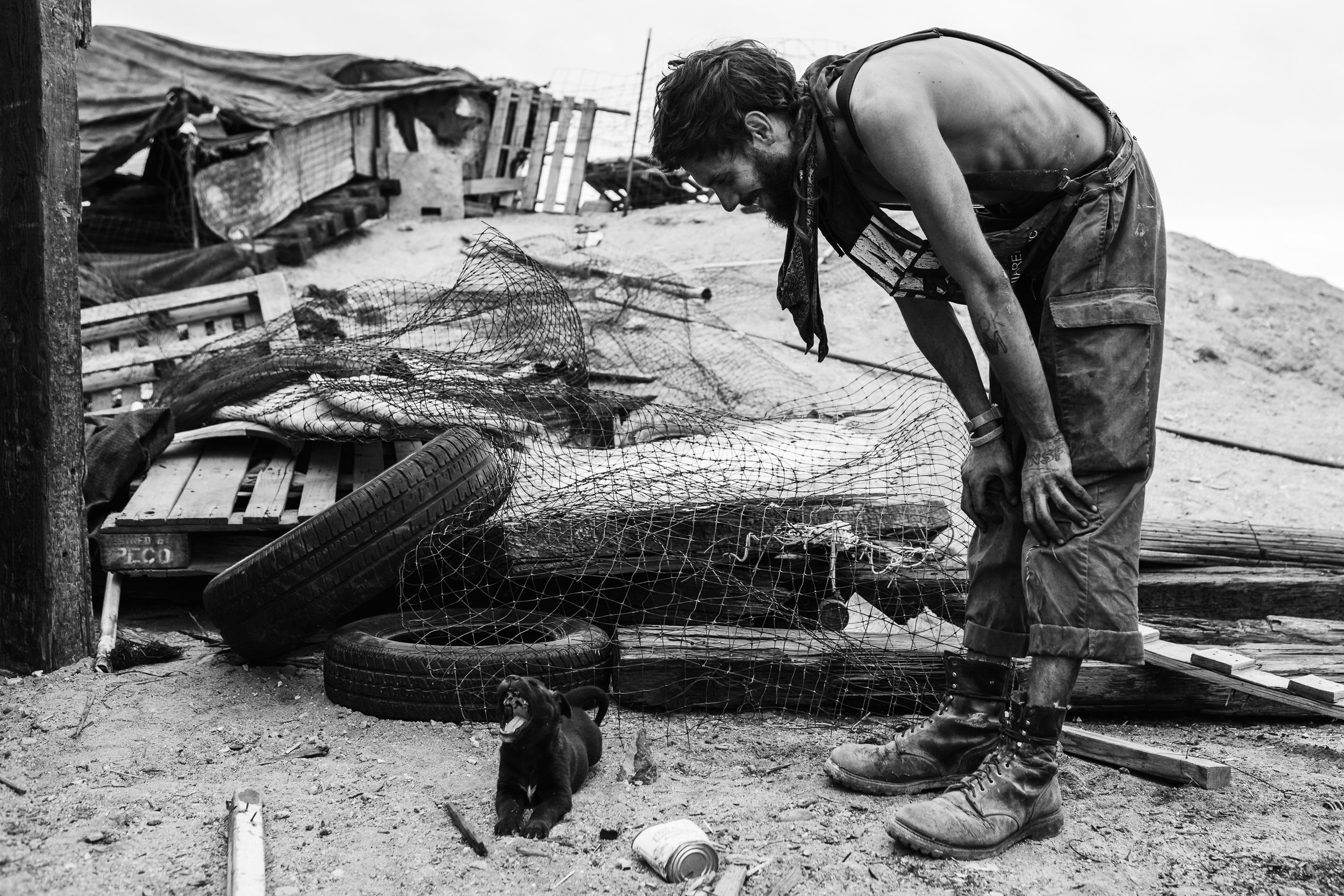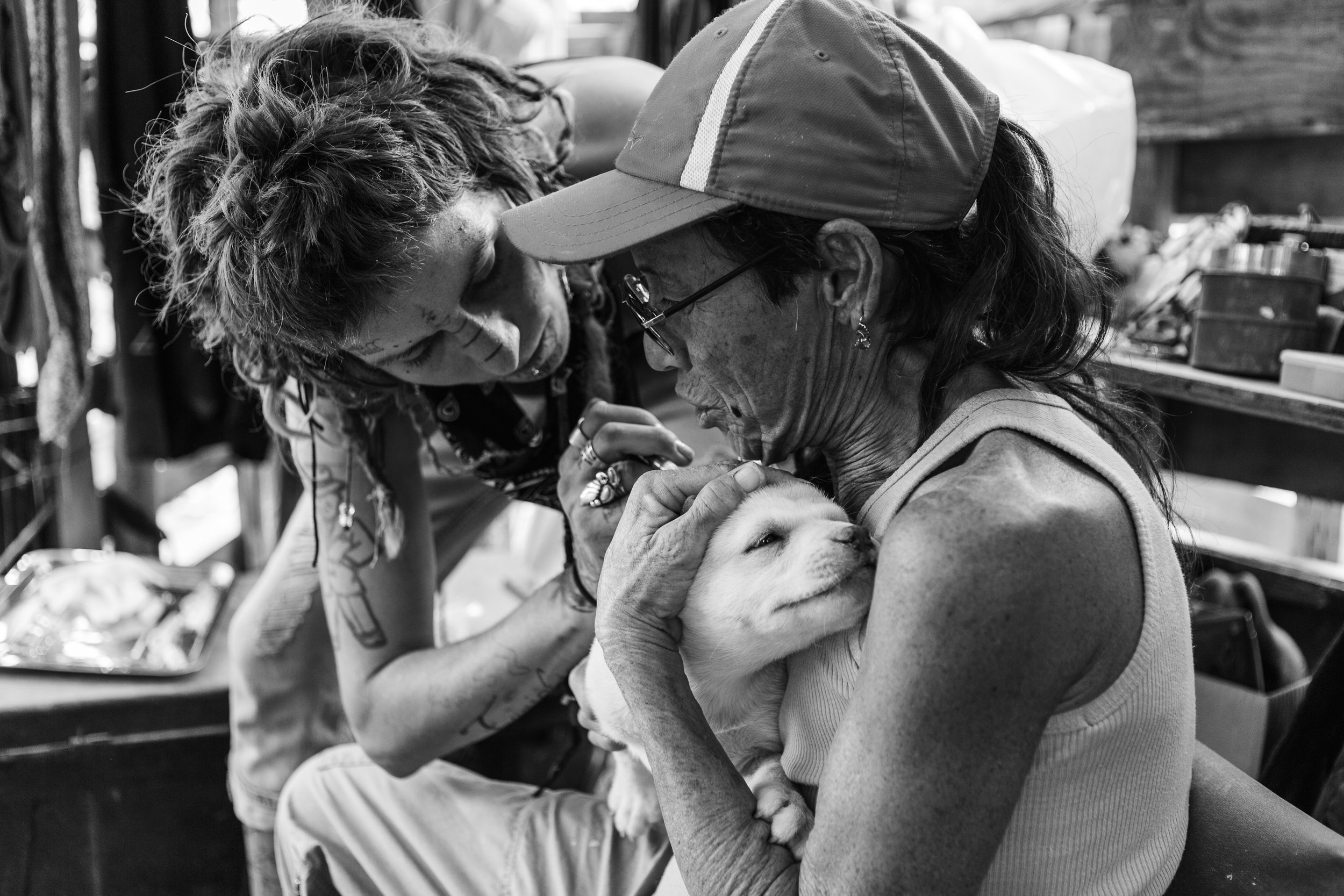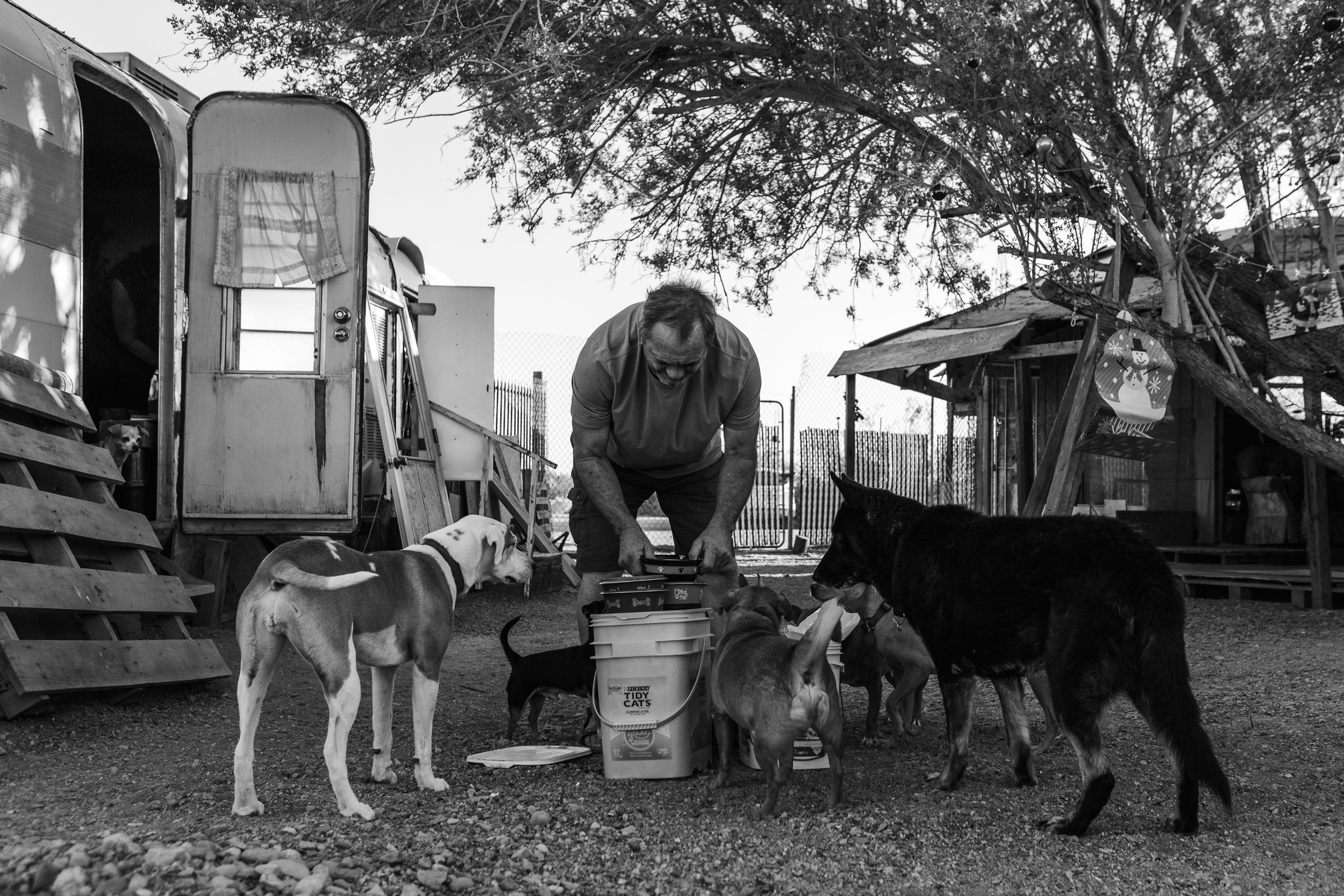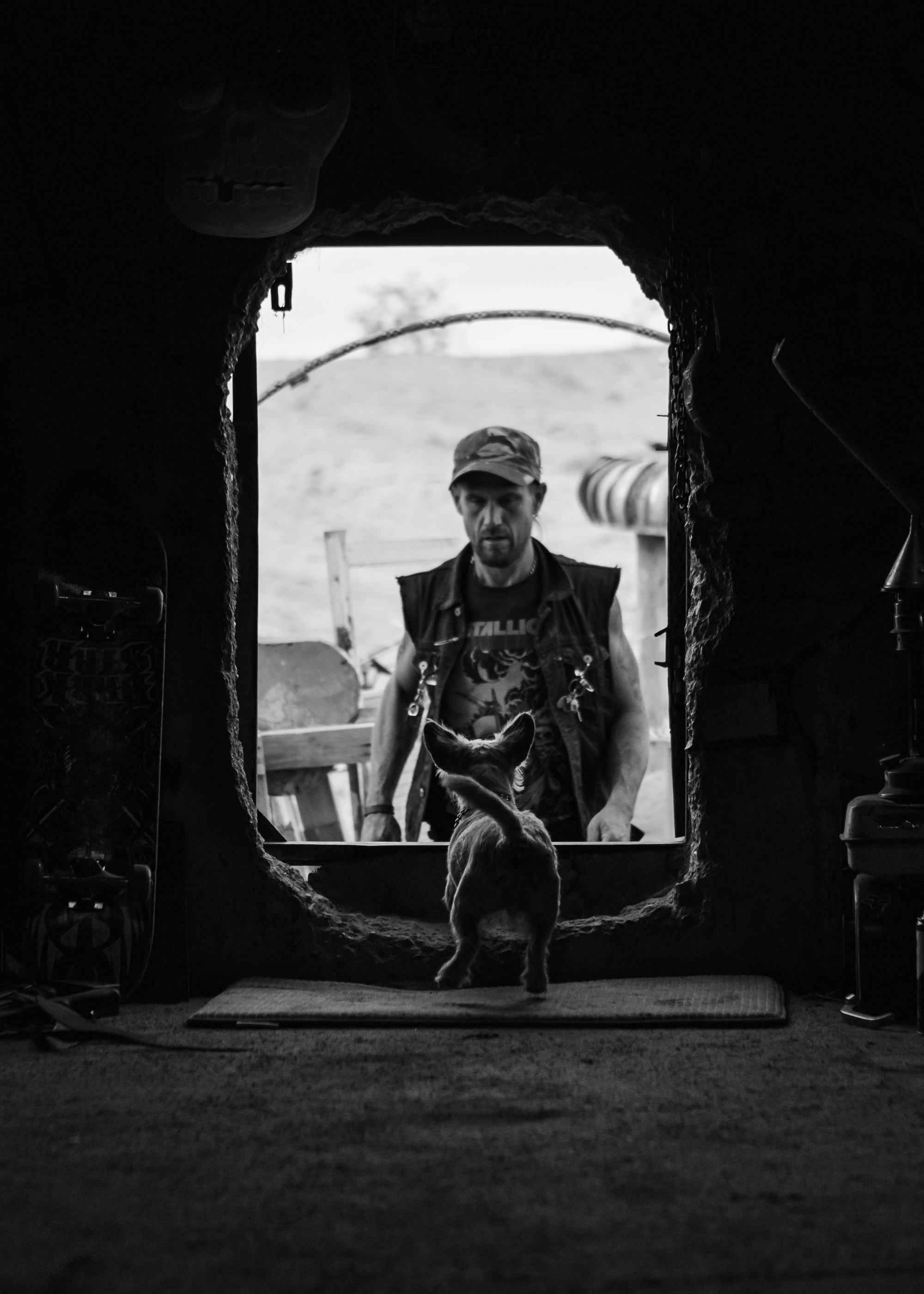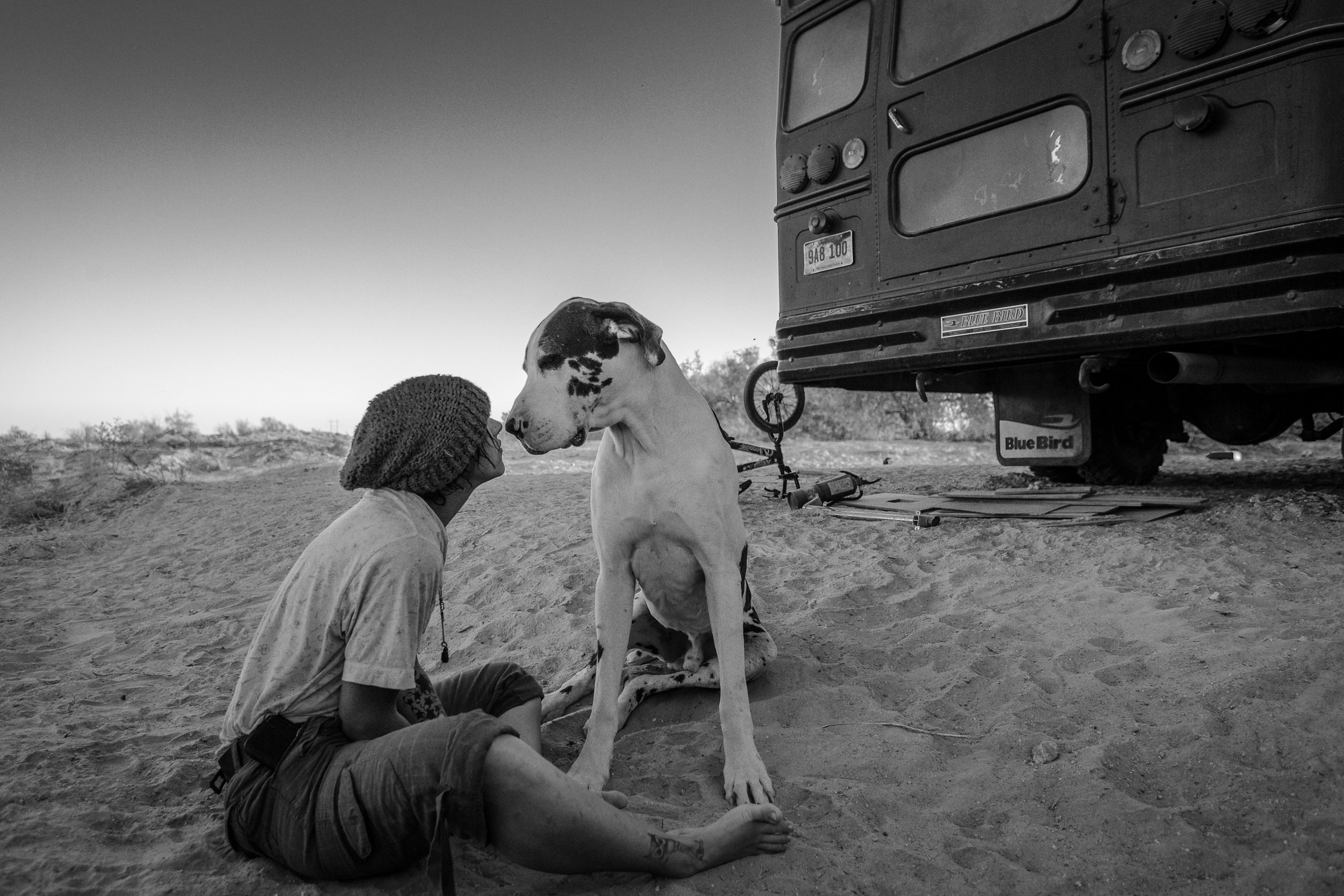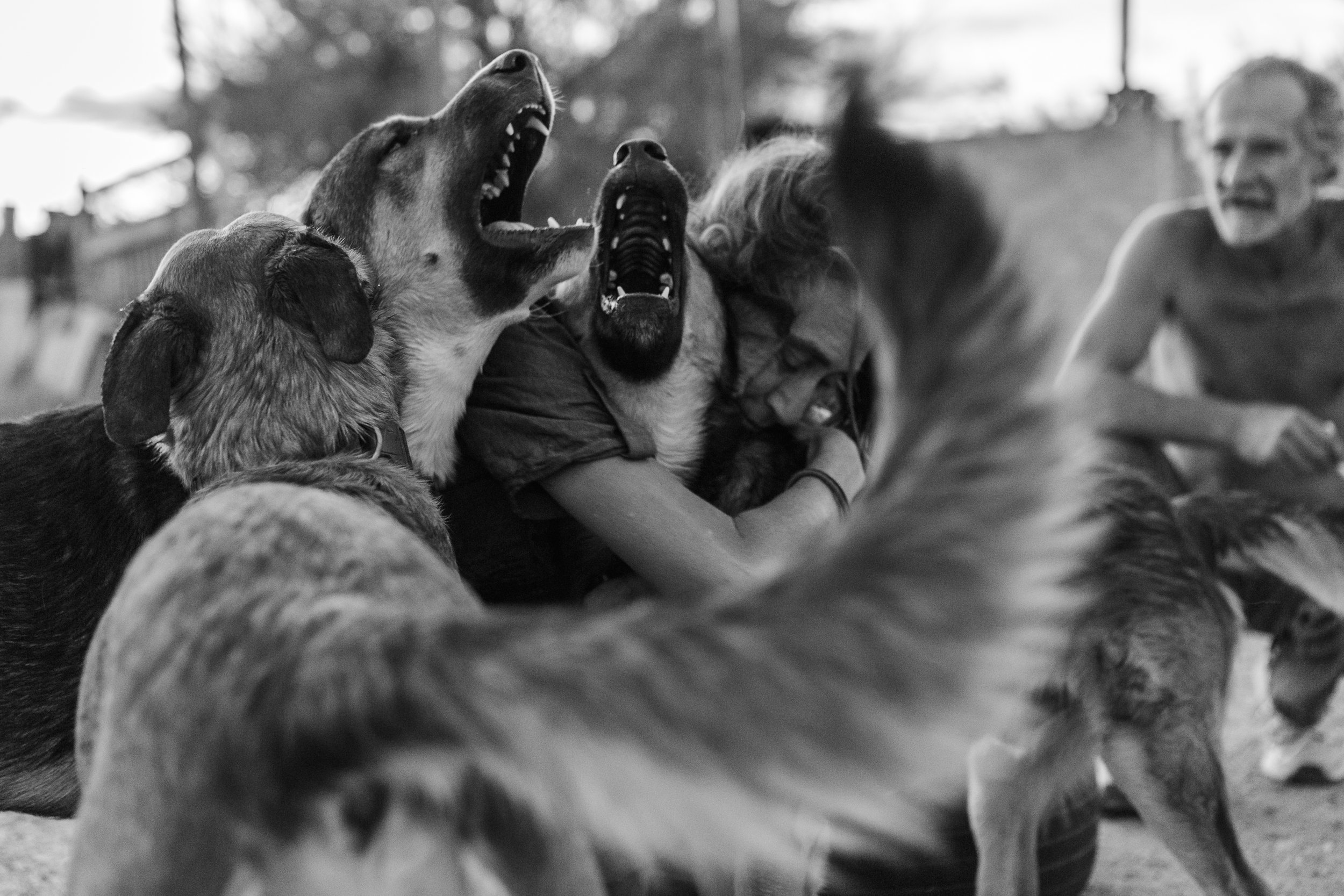
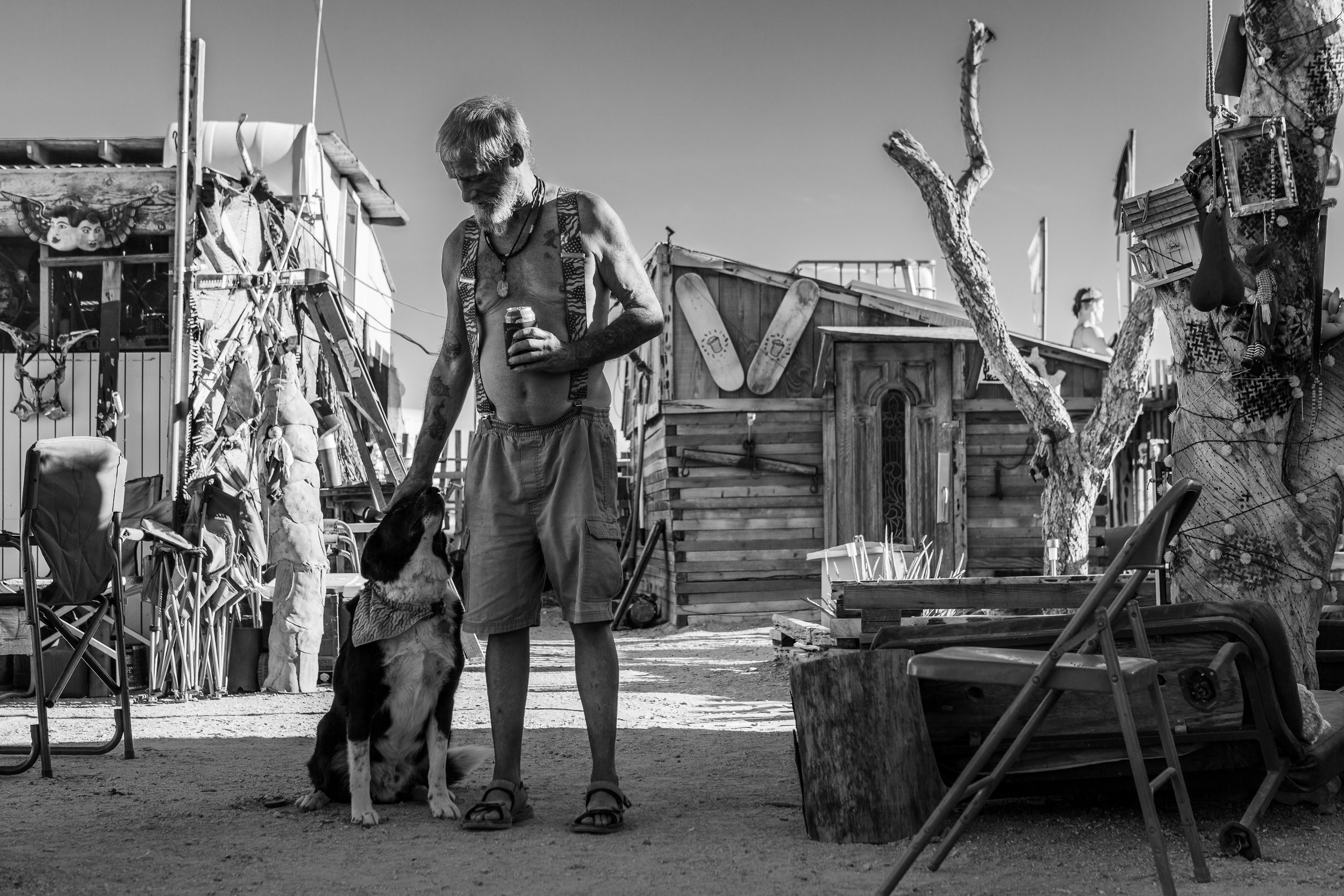
In Slab City, an off-the-grid desert community full of transients, retirees, homeless, hippies, anarchists, and mentally ill, I found a bond between humans and canines that is stronger and more loving than anywhere I had been before. Often called “The Last Free Place on Earth”, Slab City is commonly associated as a post-apocalyptic, de-facto anarchy with no running water, sewer, electricity, or trash pick up. During the winter the population can reach over 2,000, but as the summer brings temperatures of over 120 degrees, no more than 200 will stay, enduring some of the harshest living conditions.
While life can appear hard in the Slabs, it is also an accepting and nurturing place, where dogs are more than a companion or security, they are part of the family, providing their humans with love and a sense of purpose. These dogs are given back their natural freedom to socialize and play which encourages trust and fosters the desire to communicate with and satisfy their human partners.
Slabradors is an exploration into love, loyalty, and companionship that reflect on the differences between how humans and canines make judgments in a companion. It questions what a good life for a dog means, and what human characteristics are important from a dog’s perspective. This series takes place within an often stereotyped and largely dismissed subculture of the US. The focus on the relationship between humans and dogs is a way to humanize, and question the way we judge people compared to how dogs approach it. As eloquently put by Sociology Professor and author Clinton R. Sanders:
“In an important way, the distinction between relationships with humans and with animal-persons is central to the special character of the human-animal bond. Because they are not human relationships, those with companion animals are constant rather than contingent. The animal’s response to his or her companion does not depend on the latter’s appearance, age, economic fortunes, abilities, or the other vagaries that, for good or ill, constrain human-to-human relationships.”
